“How has your stance on ‘wokeness’ affected your personal relationships? Can you describe one specific instance and what you learned from it?”
Here is what these thought leaders had to say.
Cultural Humility Creates Space for Authentic Connection
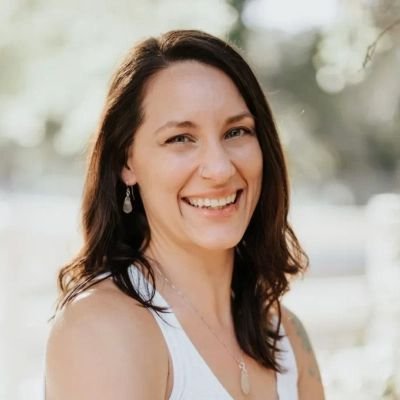
As a therapist, I’ve found that cultural humility has strengthened my relationships while challenging my own growth. My stance on acknowledging systemic inequalities has led me to create what I call “curiisity conversations” in my personal life, where I focus on understanding before reacting to differences in perspective.
A pivotal moment came when implementing the Feedback Wheel communication technique with my partner. We disagreed about attending a social justice workshop I was excited about, and instead of assuming his reluctance meant opposition to equality, I used “What I Made Up About That” to express my interpretation without blame. This opened space for him to share legitimate scheduling concerns rather than ideological opposition.
What I learned was profound: differentiating between invitations, requests, and demands (as I teach clients) applies to values-based discussions too. When I present social awareness as an invitation to grow together rather than a moral demand, it creates connection instead of defensiveness. This has become central to my practice working with couples navigating different political viewpoints.
The most valuable lesson has been recognizing that my commitment to being an ally requires ongoing education and humility. As I acknowledge in my practice statement, my lived experience as a white, cisgender woman limits my understanding of others’ challenges. This perspective has actually deepened my relationships by allowing authentic conversations that prioritize growth over perfect language or performance.
Audrey Schoen, Licensed Marriage and Family Therapist, Audrey Schoen, LMFT
Standing Firm Creates Ripple Effects Beyond Self

As a therapist working with high-achieving individuals in NYC, my stance on “wokeness” has meant creating space for difficult conversations about race, identity and systemic issues. This approach has deepened some relationships while creating necessary distance in others.
One specific instance occurred when I published guidance on coping with race-based trauma. A long-time colleague questioned whether I was becoming “too political” in my practice. Rather than internalizing this criticism, I applied the same mimdfulness technique I teach clients – viewing these comments as reflections of the other person’s limitations rather than my worth.
This experience reinforced something I tell my clients of color: standing up for yourself may seem to only affect you, but it creates powerful ripple effects. Several therapists on my team later shared how that article gave them permission to address similar issues with their own clients.
What I learned is that we cannot control others’ reactions, but we can make daily choices to live more authentically. As I wrote in my pandemic reflections, “We cannot control the future, but we can make small daily choices to live more joyfully in the present moment.” Sometimes those choices mean shining your spine and holding boundaries, even when uncomfortable.
Logan Jones, Psy.D, Psychologist & Director, Clarity Therapy NYC
Personalized Therapy Transcends Political Labels
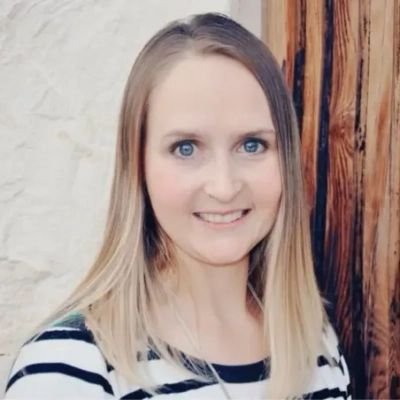
As a therapist working with diverse clients in various settings, I’ve found that my stance on “wokeness” affects my relationships primarily through how I approach cultural sensitivity in therapy. I don’t frame it in political terms, but rather as part of my holistic approach that considers mind, body, heart, and soul.
One specific instance involved a Mormon couple who came to Dream Big Counseling feeling invalidated by previous therapists who didn’t understand their religious values. They described being labeled as “unwoke” for certain family decisions. Instead of judging, I created space that honored their faith while still addressing their communication challenges using my client-centered approach.
What I learned reinforced my belief that therapy requires personalization. The couple later shared they finally felt heard because I didn’t force cultural frameworks onto them but instead helped them develop emotion regulation skills within their value system. Their progress was remarkable once they felt respected rather than stereotyped.
This experience shapes how I train our team at Dream Big to work with clients from various backgrounds, particularly in our outreach to the LDS community in Texas. Effective therapy transcends politics by focusing on each client’s unique strengths and challenges, regardless of where they fall on any ideological spectrum.
Anne Marie White, Licensed Professional Counselor, Dream Big Counseling and Wellness
Language Access Removes Barriers to Trauma Healing

As a therapist specializing in trauma and cultural sensitivity, I’ve found that what some might label “wokeness” is actually about creating therapeutic spaces where clients from all backgrounds feel truly seen. This perspective has deepened my connections with both colleagues and clients rather than creating division.
One specific instance occurred when I was establishing Full Vida Therapy’s bilingual services. A family member questioned whether offering Spanish-language therapy was “pandering to political correctness” rather than meeting genuine needs. Instead of debating politics, I shared how many trauma survivors in our community could only effectively process their experiences in their native language.
That conversation transformed our relationship. By focusing on the human impact—clients who finally felt safe enough to heal—my relative began recommending our practice to Spanish-speaking friends. They saw how language accessibility wasn’t about politics but about removing barriers to healing for people who’d experienced significant trauma.
What I’ve learned is that framing mental health support in terms of meeting genuine human needs rather than political ideology creates common ground. When I focus on the tangible difference EMDR therapy makes for a trauma survivor who can finally process their experience in their first language, political labels fall away.
Viviana McGovern, Owner & Founder, Full Vida Therapy
Neurodiversity-Affirming Care Yields Better Clinical Outcomes
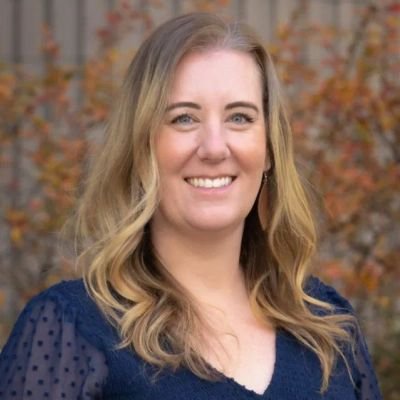
As a psychologist running a neurodiversity-affirming practice, my stance on inclusive mental health care has occasionally created interesting dynamics in personal relationships. One specific instance occurred when I was designing our assessment protocols to be more affirming and less pathologizing of autism and ADHD – a family member questioned why I wasn’t using more “traditional” approaches that focus on “fixing” these differences.
I explained that our 98% client satisfaction rate comes precisely because we approach neurodevelopmental differences as variations rather than deficits. This perspective shift has helped families see their children’s strengths rather than just challenges. The conversation was initially tense but evolved into a meaningful exchange about how evidence-based practice has moved beyond the deficit model.
What I learned was profound: leading with compassion while backing it with clinical outcomes bridges ideological gaps better than just stating positions. Now when similar discussions arise, I share specific examples like our teenage client testimonial: “This was the first time I felt understood rather than broken.” This approach has not only strengthened my personal relationships but has guided our practice’s growth from one location to three serving diverse communities.
The experience reinforced that our commitment to neurodiversity-affirming care isn’t about political “wokeness” but about better clinical outcomes. When I focus conversations on the tangible results – like families finally understanding their children’s needs after years of searching – even skeptical individuals can appreciate our approach, regardless of their political stance.
Erika Frieze, Owner & CEO, Bridges of the Mind
Beyond Labels: Creating Emotional Safety Transforms Relationships

As a therapist specializing in transgenerational trauma within bicultural communities, I’ve found that my approach to identity-related issues (what some might call “wokeness”) has actually deepened my therapeutic relationships. Rather than using political labels, I focus on creating spaces where clients can explore how cultural expectations affect their authentic selves.
One significant moment came while facilitating a parents group where we discussed challenging gender stereotypes. A father who initially dismissed the conversation as “politically correct nonsense” later approached me privately, emotional about how his own father’s toxic masculinity messaging (“boys don’t cry”) had affected his relationship with his son. By focusing on the emotional impact rather than political terminology, we were able to develop practical communication strategies that transformed their relationship.
What I learned was profound: when we move past polarizing labels and instead focus on the human experience of feeling trapped between cultural expectations, people become surprisingly receptive. This father later told me his son had started opening up about bullying he was experiencing—something that might have remained hidden had they maintained their previous communication patterns.
In my practice, I’ve found that the most transformative work happens when we abandon the “woke vs. traditional” framework entirely and instead ask: “What creates genuine emotional safety for this specific person?” This approach has allowed me to work effectively across cultural and political spectrums while maintaining my commitment to creating spaces where everyone—especially bicultural individuals caught between worlds—can feel authentically seen.
Cristina Deneve, Founder, Empower U
Concrete Examples Bridge Workplace Equality Divides

As an employment attorney representing workers in discrimination cases, I’ve found that standing up for equality in the workplace has had both challenges and rewards in my personal relationships. My stance isn’t about “wokeness” but rather about basic legal protections that every American deserves regardless of race, gender, or background.
One specific instance that stands out involved a longtime friend who owned a small business. During a casual dinner, he complained about “having to walk on eggshells” with today’s workplace regulations. Instead of lecturing him, I shared a recent case where an employee was repeatedly passed over for promotion despite superior performance metrics. The documentation clearly showed bias in action.
What I learned from this conversation was invaluable. By focusing on concrete examples rather than abstract concepts, I could help him see these issues weren’t about politics but about real people facing tangible harm. He later implemented structured promotion criteria at his company based on job performance rather than subjective factors.
In my 20+ years litigating employment cases across Mississippi, I’ve found that most relationship tensions around these topics dissolve when we focus on specific harms rather than labels. The same approach that works in the courtroom—documenting everything and focusing on measurable impacts—works surprisingly well in personal conversations too.
Nick Norris, Partner, Watson Norris, PLLC
Addressing Fear Behind Politics Creates Therapeutic Connection
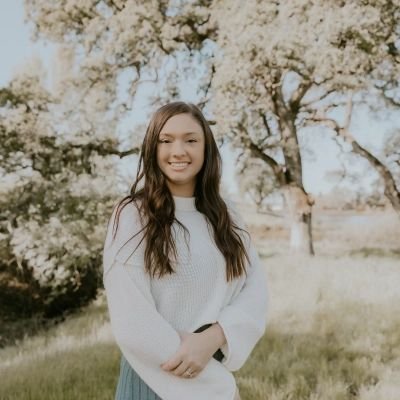
As a therapist who works extensively with trauma, anxiety, and family dynamics, I’ve found that my stance on “wokeness” – which I view as an evolving understanding of diverse experiences – has actually strengthened my therapeutic relationships. My approach is clinical rather than political, focusing on how societal factors impact mental health.
A specific instance occurred when working with a family struggling with their teen’s identity exploration. The parents initially resisted what they called “woke ideology,” seeing it as threatening their values. Rather than debating terminology, I applied my training in family systems and emotion regulation to help them understand their child’s experience while honoring their concerns.
Using Acceptance and Commitment Therapy techniques, we focused on creating space for different perspectives while maintaining family bonds. This approach, which I’ve refined working with high-conflict families, allowed them to move from defensiveness to curiosity about their child’s experience.
What I learned from this experience reinforced something I see in my OCD and trauma work daily: rigid thinking patterns often serve as protection against uncertainty. By addressing the underlying fear rather than the political labels, we create room for genuine connection while respecting different viewpoints.
Kelsey Thompson, LMFT, Owner, Light Within Counseling
Finding Common Ground Preserves Valuable Relationships
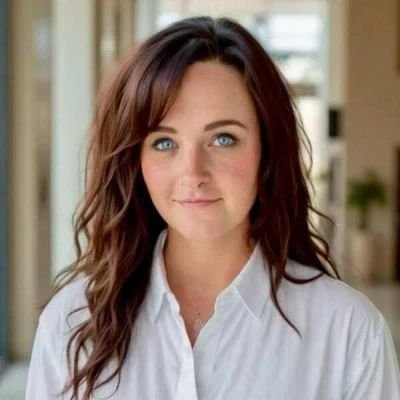
I’ve always believed that it’s important to speak up for what you believe in, especially when it comes to standing for values that matter to me. However, my views on ‘wokeness’ have occasionally led to strained relationships, particularly with friends who see things differently. A specific instance comes to mind with a colleague from the past who was very vocal about supporting various aspects of the movement. We found ourselves at odds during a work-related discussion, and while I wanted to stand my ground, I realized how much it was affecting the team’s dynamic. The tension became hard to ignore, and I could tell it was creating an uncomfortable atmosphere for everyone involved.
I learned that there’s a time and place to address these issues, but it’s equally important to preserve the relationships I value. I started focusing less on the conflict and more on finding common ground where we could both agree. It took some humility to admit that we didn’t have to agree on everything to work well together. That experience taught me the value of compromise and understanding in keeping personal and professional relationships intact, even when we hold differing views.
Elizabeth Lawrence, Managing Editor, MAGA.com
